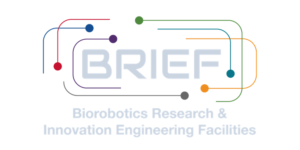POLICY BRIEF
04 July 2023
03

di Tommaso Crepax
THE RIGHT TO DATA PORTABILITY
Background. The right to data portability allows individuals, businesses, and research centres to gain control of their personal or business data while also encouraging competition among similar services providers.
As enshrined in art. 20 GDPR, data portability enables individuals to receive a copy of their personal data in a structured, commonly used, machine-readable format. They can then transmit this data to another controller from the original one. This principle applies to personal data provided by individuals and includes both data actively generated by users and data created through their interactions with a service. Other existing and future regulations extend such right to business data and machine-generated data (f.i., IoT).
The significance of data portability is twofold. Firstly, it enhances individuals’ control over their personal data, empowering them to access and move their information freely. This fosters autonomy, enabling users to make informed decisions about the systems they use. Secondly, it promotes competition by reducing barriers to entry for new providers. It encourages innovation allowing users to more easily switch between platforms, preventing vendor lock-ins, improving services and enabling Research and Innovation.
Highlights.
- Developing bioengineering systems with data portability capabilities poses challenges due to the inherent sensitivity of the data collected, the processing of which must undergo legally complex requirements due to the riskiness of its misuse.
- Technical difficulties arise in harmonizing data formats for interoperability between inherently different services. For example, porting biological data collected from individuals by different technologies requires reconciling divergent data structures and formats.
- Interactions with third-party applications and services further complicate data portability, as different platforms may have varying levels of compatibility and support for data transfer protocols.
Impacts. The implementation of data portability within the EU single digital market is expected to have significant impacts on various fronts of biorobotics.
Horizontal Concept: Data portability is a comprehensive concept that encompasses all types of data, irrespective of their nature (personal data, non-personal data, machine-generated, etc.). Its broad scope highlights its importance in the EU’s data strategy, notably reflected in the Data Act and the development of common European data spaces (such as the European Health Data Space).
Personal Health Monitoring: Individuals may want to access the data generated by biosensors to monitor their health status, track specific parameters, or detect anomalies. Porting this data would allow them to review it, share it with healthcare professionals, or integrate it with personal health management systems.
Collaborative Healthcare: if multiple healthcare providers or specialists are involved in the care of the patient, data portability could enable the seamless sharing of relevant information across different healthcare settings. This could help ensure continuity of care, facilitate informed decision-making, and optimize treatment plans.
Research and Development: In cases where bio-robotic technologies are part of a research project or experimental study, porting those technologies-generated data could be crucial for researchers and engineers to analyze the performance, functioning, or response of the systems’ components. This data could contribute to ongoing research efforts, improve the design of future bioengineering technologies, or assist in the development of personalized treatments.


